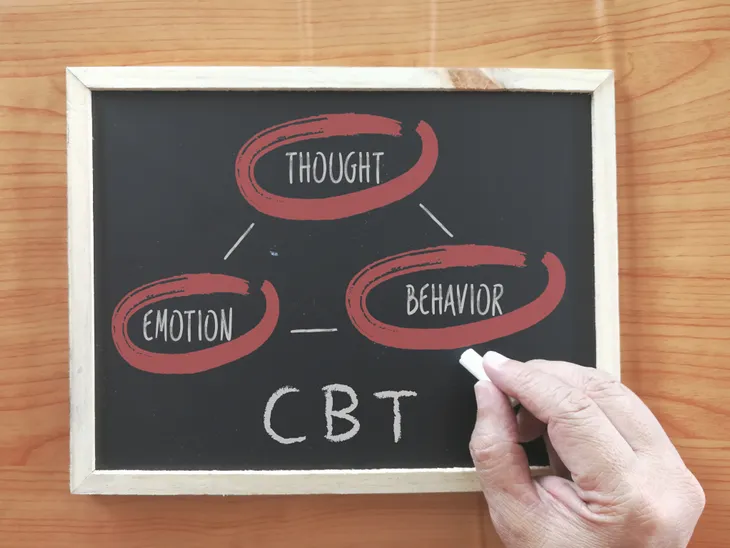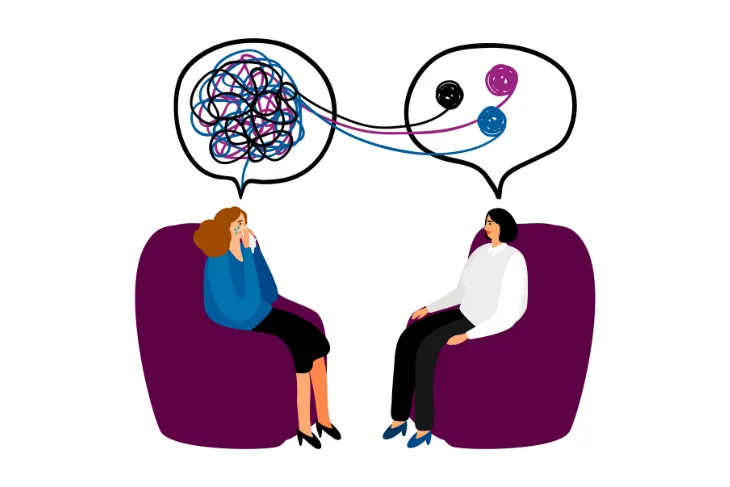- Although rare, histrionic personality disorder is a serious psychiatric disorder that causes attention-seeking behaviors.
- Individuals with HPD often have a distorted mental image of themselves and they usually rely on the approval of others to boost their self-esteem.
- While there is no cure, there are a variety of therapeutic strategies that can help the individual cope.
Humans are interesting species and what makes us exciting and unique is that everyone has their own personality. Confidence and good social skills are two traits many people strive for but individuals with histrionic personality disorder (HPD) take it to the extreme.
Although rare, HPD is a serious psychiatric disorder that causes attention-seeking behaviors. These individuals can be charming but they can also be manipulative and impulsive. But there’s a lot more to know about this disorder. Follow along as we uncover everything you need to know about histrionic personality disorder including the common signs, causes, and treatment options.
What Is Histrionic Personality Disorder?
Histrionic personality disorder, also known as dramatic personality disorder, is a psychiatric disorder. According to the National Library of Medicine, HPD is “distinguished by a pattern of exaggerated emotionality and attention-seeking behaviors.”
HPD belongs within the group of “Cluster B” personality disorders along with narcissistic personality disorder, borderline personality disorder, and antisocial personality disorder. This group of personality disorders is often described as erratic, volatile, dramatic, and excitable. Individuals with HPD are particularly known to be flirtatious, seductive, charming, manipulative, impulsive, and lively.
How Common Is HPD and Who Does It Affect?
A histrionic personality disorder is fairly rare. According to research, roughly 1.8-percent of the American population have HPD, however, that is still roughly 3.8 million individuals.
According to the Cleveland Clinic, histrionic personality disorder typically develops in late teens or early adulthood. While anyone can develop it, the source says it’s most commonly diagnosed in females, however, some researchers believe the disorder may be underdiagnosed in males.
Signs of Histrionic Personality Disorder
Individuals with histrionic personality disorder often have a distorted mental image of themselves and they usually rely on the approval of others to boost their self-esteem. Healthline notes that this creates a need to be noticed which often causes the individual to turn to dramatic antics.
Unlike some other types of personality disorders, HPD doesn’t always interfere with everyday life. Many people with HPD can lead successful social and work lives. But it often comes at a cost to others as they use manipulation to get what they want.
Common Symptoms of Histrionic Personality Disorder
Healthline points out that if an individual has histrionic personality disorder, they will display 5 or more of the following symptoms:
- Thinks relationships are more intimate than they really are.
- Uncomfortable in situations when they’re not the center of attention.
- Displays exaggerated expression of emotion.
- Rapidly shifts emotions and displays shallow expressions of emotions.
- Easily influenced by others or circumstances.
- Displays seductive or provocative behavior.
- Their speech is excessively impressionistic and lacking in detail.
- Often uses their physical attention to lure attention to themselves.
The source also points out that other characteristics of HPD include making rash decisions, being easily frustrated or bored with routines, or threatening bad behavior in order to get attention.
Possible Complications
This psychiatric disorder can have several complications that interfere with the individual’s life. For starters, it may affect their social or romantic relationships. Medline Plus also points out that the disorder may also make it difficult for the individual to cope with losses or failures. Additionally, they may change jobs often due to boredom or not being able to deal with frustration. But that’s not all.
The National Library of Medicine says this disorder may increase an individual’s risk of developing depression or a substance use disorder. They’re also at risk for panic attacks, conversion disorders, and somatization disorders.
What Causes Histrionic Personality Disorder?
According to the Cleveland Clinic, “Personality disorders, including histrionic personality disorder, are among the least understood mental health conditions.” While the exact cause is unknown, studies show that there may be several factors that lead to the development of HPD.
For starters, genetics may play a role, meaning if a close family member has the disorder you may be at risk of developing it too. Childhood trauma may also later become a part of a personality disorder. The source also notes that certain parenting styles such as ones that lack boundaries, are inconsistent, or are over-indulgent may lead to HPD.
Diagnosing Histrionic Personality Disorder
HPD may interfere with your everyday life which is why a proper diagnosis is important. There isn’t a specific test to diagnose the disorder, however, your doctor will start by reviewing your medical history. They may also perform a physical exam to find out if any health problems may be causing your symptoms. If there is no cause, your doctor will likely refer you to a psychiatrist for an official diagnosis.
Healthline explains that psychiatrists are trained to recognize and treat psychological disorders. By asking questions and assessing your behaviors, they’ll be able to diagnose you.
It’s also worth noting that many individuals with HPD don’t think they need help, which can make a diagnosis challenging. The source says many people with the disorder receive a diagnosis after going to therapy for depression or anxiety, “usually following a failed relationship or other personal conflicts.”
Treating Histrionic Personality Disorder
As we mentioned earlier, individuals with HPD often don’t think their behaviors are problematic and in turn, they often don’t seek out treatment. However, the Cleveland Clinic says they may seek help after a failed relationship or when their behavior causes them distress or depression.
Histrionic personality disorder cannot be cured but there are a variety of therapeutic strategies that can help the individual cope. The National Library of Medicine says, “Patients who participate in therapy tend to have better outcomes as they gain insight into their condition and function more optimally socially and occupationally.” Let’s take a look at what types of therapy are used for HPD next.
Treatment: Cognitive Behavioral Therapy
Cognitive behavioral therapy (CBT) can be an effective treatment option for HPD. This is a goal-orientated type of therapy that helps the individual take a closer look at their thoughts and emotions.
The Cleveland Clinic explains that CBT can help you comprehend how your thoughts affect your actions. It can also help you “unlearn patterns of negative thoughts and behaviors and learn to adopt healthier thinking patterns and habits,” explains the source.
Treatment: Psychodynamic Psychotherapy
Another treatment option is psychodynamic psychotherapy. According to the American Psychological Association (APA), this type of therapy “focuses on the psychological roots of emotional suffering.”
The therapist helps the individual look into problematic relationship patterns through self-reflection and self-examination. The ultimate goal is to help alleviate obvious symptoms so they can lead healthier relationships and lives.
Treatment: Supportive Psychotherapy
Supportive psychotherapy can also help treat histrionic personality disorder. The goal of this type of therapy is to help maintain, restore or improve self-esteem and to help the individual develop coping skills. As a result, this may help improve their symptoms.
The Cleveland Clinic explains that during supportive psychotherapy, the individual and therapist will examine their relationships and patterns of emotional response or behavior.
Treatment: Group Therapy
In some cases, group therapy may be an effective treatment tool. During this type of therapy, you’ll discuss your problems in a group setting while under the supervision of a therapist or psychologist.
The Cleveland Clinic points out that group therapy can be particularly beneficial for histrionic personality disorder because it can help the individual “see their own behavior reflected back at them.” It’s important to work with your psychiatrist to determine which type of therapy is best for your treatment plan.















